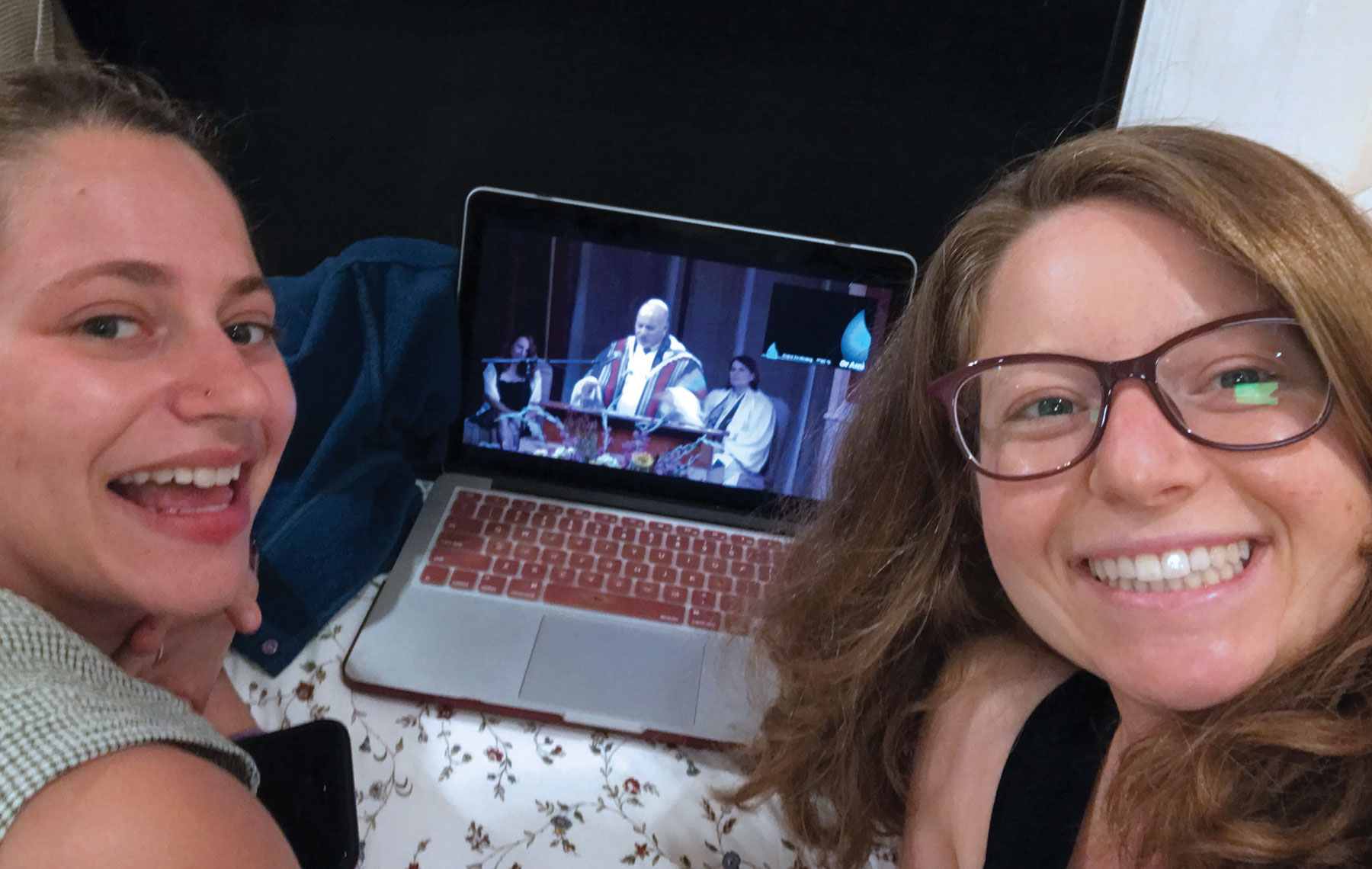 UC Berkeley students Orly Raveh and Becca Speyer live-stream Congregation Or Ami’s Rosh Hashanah services
UC Berkeley students Orly Raveh and Becca Speyer live-stream Congregation Or Ami’s Rosh Hashanah services While many Jews head to services over the High Holy Days, there are some who, for a variety of reasons, can’t or don’t wish to attend synagogue. For these people, there are ways around this obstacle in the 21st century: welcome to streaming online services.
In Los Angeles alone, synagogues from Koreatown’s Wilshire Boulevard Temple to Congregation Or Ami in Calabasas live-streamed their services.
Rabbi Naomi Levy, of Nashuva, has been leading Kol Nidre Live online for 10 years. The services began as a webcast on the Jewish Television Network (JTN) before Nashuva partnered with the Jewish Journal, when Levy’s husband, Rob Eshman was editor-in-chief.
Levy was originally approached by JTN’s then-president and now Jewish Federation of Greater Los Angeles President and CEO Jay Sanderson, about doing the broadcast.
“My first [thought] was worrying, ‘Will people think it’s sacrilegious?’” Levy told the Journal by phone. “But then we thought about all the people who are either homebound or in some way turned off to Judaism, and it might just be a window for them. Even from the first webcast we realized that there were tens of thousands of people out there starving for a way to have a Yom Kippur experience who weren’t able to come [to services] physically.”
After receiving an email from a family in a country that doesn’t permit the public gathering of Jews, Levy said, “I could not figure out where they were, but they said, ‘We’re not allowed to practice Judaism publicly, and we’re here with you [online] and we can’t tell you what this means. We’re just sitting here in tears, to be able to experience Yom Kippur with you.’”
Over the years, Nashuva’s services have earned long-time followers. Felicia Goldring wrote on this year’s live-stream page, “I actually just came home from shul, and I looked forward to the second Kol Nidre of the night — watching, listening and singing to this.”
“From the first webcast we realized that there were tens of thousands of people out there starving for a way to have a Yom Kippur experience who weren’t able to come [to services] physically.”
— Rabbi Naomi Levy
A woman named Louise posted, “I found this service a few years ago when I was ill on erev Yom Kippur, and now I choose it over my regular shul.”
Or Ami has been live-streaming the High Holy Days for six years. “You are not watching, you’re worshipping,” Rabbi Paul Kipnes told the Journal. “For those people who cannot be in shul because their kids are too young or because a loved one is ill or because they’re required to work, to be able to worship with us has been transformational for them. It’s incredibly rewarding to be able to touch their lives even when their lives don’t allow them to stop and get into shul.”
Online worship also appeals to those who haven’t found a synagogue that works for them.
“I received a beautiful note from a guy back East who said he hadn’t been to a synagogue since he broke with his past shul,” Kipnes said. “He found us online and said, ‘I felt like something that was closed off has opened up, and I feel connected once again to the Jewish community and with God.’”
San Francisco resident Tracey Gersten told the Journal she prefers Or Ami’s online services to attending the synagogue by her home. “And it’s not just [because of] parking and traffic. There are all these distractions that happen when you’re in a room full of 500 people,” Gersten said. “Not only is the spiritual connection deeper, it allows me to get all of the other responsibilities that go along with the holidays.”
Don Levy, director of marketing and communications for Wilshire Boulevard Temple, said he watched the synagogue’s live-streaming services in 2015, before he began working there.
“Two of my sons were out of town, so we were all able to virtually be there together,” he said. He added, that many of Wilshire Boulevard Temple’s online viewers are former congregants who have moved to other cities. “They are grateful,” he said, “that they can participate in a synagogue they love.”























 More news and opinions than at a Shabbat dinner, right in your inbox.
More news and opinions than at a Shabbat dinner, right in your inbox.